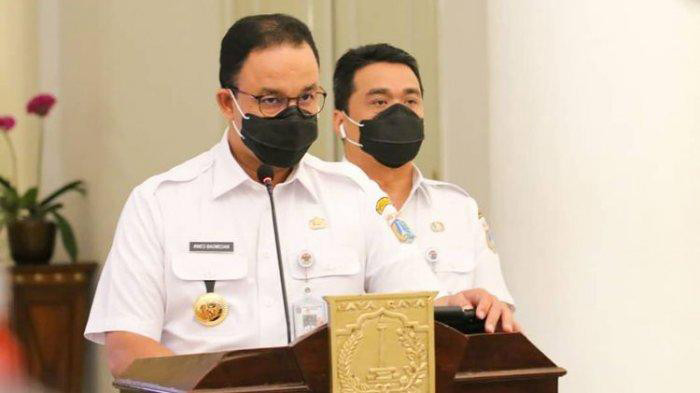Popular Reads
Top Results
Can't find what you're looking for?
View all search resultsPopular Reads
Top Results
Can't find what you're looking for?
View all search resultsLeading Jakarta
Three years of governorship have seen disharmony between Anies and the central government on many fronts, which is not supposed to happen, for better or worse.
Change text size
Gift Premium Articles
to Anyone
F
or a leader, three years should be more than enough to amass some achievements that could convince people they had elected the right person. Given the country’s five-year political cycle, the third year in power usually marks the beginning of a concerted, systematic effort to win reelection or, if possible, gun for a higher office.
Jakarta Governor Anies Baswedan is no exception. Many predict he will fight to retain his mandate in 2022 to keep his chances of running in the 2024 presidential election alive. While he certainly deserves a shot, the question is what he has in store to woo more than 50 percent of the electorate.
Anies assumed office on Oct. 16, 2017, along with Sandiaga Uno after a divisive race that many believed was an extension of the elite rivalry that characterized the 2014 presidential election. There is no doubt that religious sentiment, as evinced by the 212 Movement, drove Anies to the gubernatorial seat, but it is also true that his pro-people platform attracted many.
That Anies – a former education minister under President Joko “Jokowi” Widodo – could defy the odds against the country’s ruling coalition showed, to some extent, his political acumen. But actually governing has proven to be extremely challenging, if not exhausting. In addition to dealing with daily chores as the city’s leader, Anies has had to carefully negotiate with a political centrum that did not expect him to become governor in the first place.
Three years of governorship have seen disharmony between Anies and the central government on many fronts, which is not supposed to happen, for better or worse. The latest conflict came just last month when Anies pulled the metaphorical emergency brake to contain the spread of COVID-19 in the capital, which is the country’s epicenter of virus transmission.
This week, Anies relaxed the restrictions he had imposed, moving Jakarta back into transitional large-scale social restrictions (PSBB). Suspicion abounded that Anies had come under pressure from both the central government and business players, who wanted the wheels of the economy to turn amid looming national and global recessions.
It is perhaps the protracted squabbling that has deprived Anies of opportunities to fulfill all his campaign promises. He claims to have achieved some of them by building lowcost apartments for the poor, expanding the Transjakarta operational network and further integrating modes of public transportation. He has also improved sidewalks in the city’s thoroughfares to accommodate pedestrians.
But many decried his decision to proceed with a reclamation project to expand Ancol, a popular tourist spot in North Jakarta. They had not forgotten Anies’ pledge to stop the controversial policy of former governor Basuki “Tjahaja” Purnama prior to the 2017 election.
In the eyes of the city councilors, most of whom belong to government-aligned parties, Anies has failed to perform so far. What matters the most to many, however, is his capability to lead Jakarta away from the overarching, long-lasting impacts of the pandemic in the remaining two years of his term.










